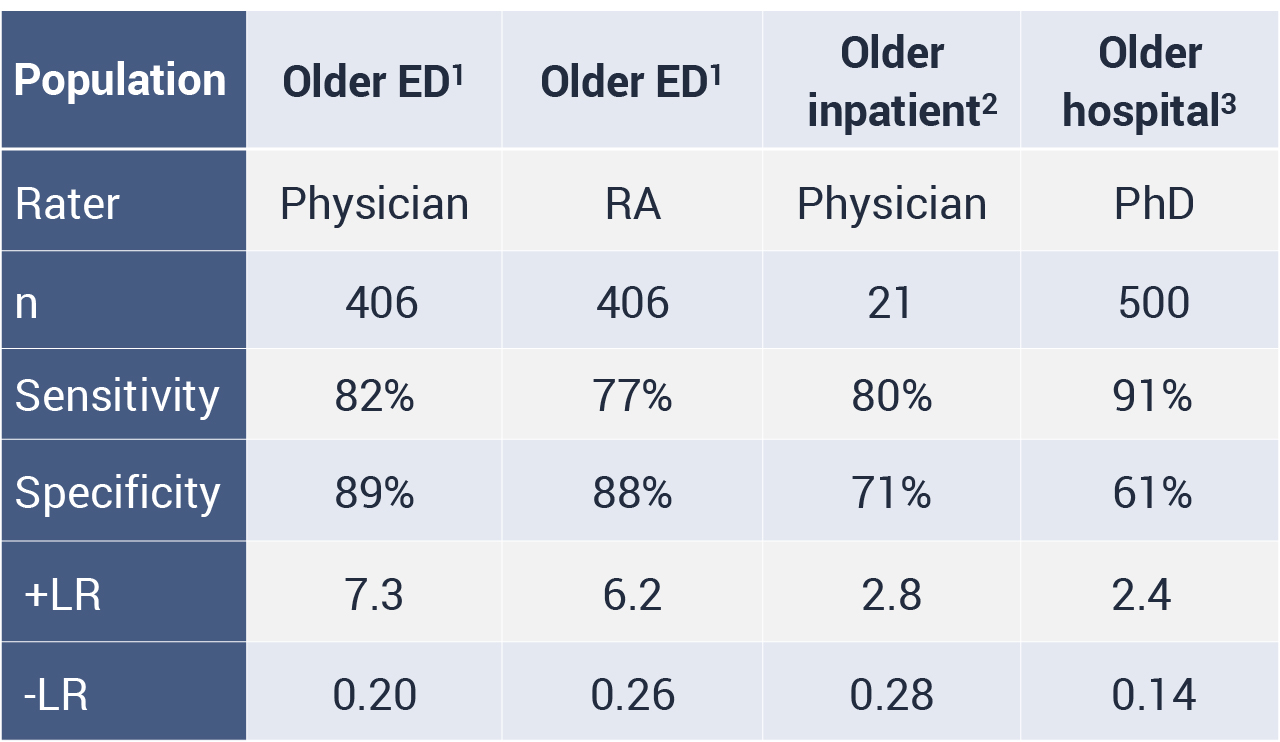SQiD (30 seconds)
A proxy-based delirium assessment
The Single Question in Delirium (SQiD) is a proxy-based or informant-based delirium screen.
The rater asks a family member or caregiver “Has the patient been more confused lately?” Based upon the likelihood ratios, a positive response slightly to moderately increases the likelihood of delirium, while a negative response moderately reduces the likelihood of delirium.
 1Han JH, et al. Am J Emerg Med. 2018;36(7):1249–1252.
1Han JH, et al. Am J Emerg Med. 2018;36(7):1249–1252.2Sands MB, et al. Palliat Med. 2010;24(6):561–565.
3Hendry K, et al. Age Ageing. 2016;45(6):832–837.
ED, emergency department
LR, likelihood ratio
RA, research assistant
Advantages and Disadvantages of SQiD
ADVANTAGES
- Very brief
- Very simple
- No additional patient interaction required
DISADVANTAGES
- Moderate sensitivity and specificity
- Requires a proxy (family member or caregiver) to be present in the ED
- Limited external validation in older ED patients
NOTE:
One major disadvantage of the SQiD is that proxies are absent for 40% of older ED patients. Additional validation data are needed to better characterize the SQiD’s diagnostic performance in older ED patients.
References
Han JH, et al. Am J Emerg Med. 2018;36(7):1249–1252
Sands MB, et al. Palliat Med. 2010;24(6):561–565
Hendry K, et al. Age Ageing. 2016;45(6):832–837
Abbreviations
ED, emergency department
LR, likelihood ratio
RA, research assistant
SQiD, Single Question in Delirium
